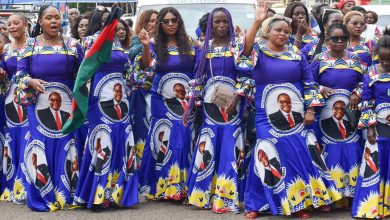Beware of online influencers
As Malawi prepares for the 2025 General Elections, something is brewing that we all need to keep an eye on.
It is not just the usual political campaigns or the endless promises, but social media and its influencers.
Recently, we have noted how some individuals and groups have attempted to influence outcomes during political parties’ national elective conventions and some are currently trying to influence the voting in more to come.
Once upon a time, social media was like a giant playground where free expression reigned and everyone could have their say.
But now, it has become a battlefield where misinformation, propaganda and political bias fly faster than you can say “hi”.
The social media has changed the game, with Facebook, X, WhatsApp and other platforms providing access to information that our grandparents could only dream of.
It’s like having a 24/7 news channel, a political debate stage and a community forum all rolled into one.
But social media can stir up trouble too.
It is the way social media is being used—or rather, weaponised—by influencers.
The very people who show you what to wear, eat or listen to are now telling you how to think about politics.
Pheew!
Influencers have become powerful storytellers who can make something as innocent as a year-old picture, story or a video clip look like it just happened yesterday.
For example, if an influencer digs up and shares an old announcement without mentioning the date, people suddenly think it is current news.
Without context, it is easy to get lost in the hype. If you are not paying close attention, you might believe it too.
Now, social media is where yesterday’s news can be today’s headlines and a stale picture can suddenly become “breaking news.”
If you have ever found yourself wondering, “wait, did not this happen ages ago?” You are not alone. Welcome to the wild world of social media influencers, where the truth can get a little, well, flexible.
But here is where it gets tricky. Some influencers are pushing their own political agendas.
Now social media influencers are cherry-picking facts that support their views, conveniently ignoring anything that does not fit their narrative and packaging it all in a way that makes you think, “yeah, they are probably right.”
But are they?
The result is a distorted version of reality where sensationalism rules the day, and substance takes a backseat.
You might be thinking, “so, what if influencers are a bit biased? I can make up my own mind!” You are right. Malawians are smart, savvy and capable of critical thinking. But when misinformation spreads, it can lead to some pretty serious consequences.
The real danger here is the politicisation of the national agenda.
Influencers can take a complex issue and reduce it to a catchy ‘headline’ or a viral video, making it seem like there is only one side to the story. It is a recipe for misinformation served up with a side of confusion.
So, what has a savvy social media user to do?
Simple: take everything you see online with a pinch of salt. If something sounds too good (or too bad) to be true, it might just be yesterday’s news dressed up as today’s.
Before you hit that like or share button, ask yourself: “Is this really current? Is it the whole picture?”
In the end, it’s up to us to stay sharp and keep asking the right questions.
Next time you see a post that makes you go, “huh?”, take a moment to check the facts. In the fast-paced world of social media, yesterday’s truth could be today’s fiction.

